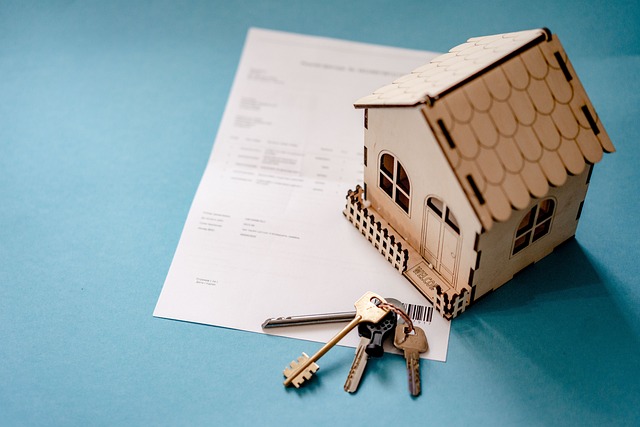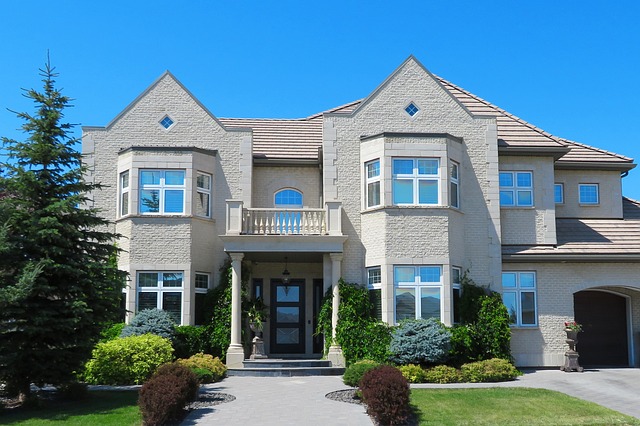Singapore's Executive Condos (ECs) are a unique public-private housing hybrid that evolves after five years to offer homeowners increased flexibility and market opportunities. Post-five-year ECs become available to a broader range of eligible buyers, attracting both investors and families looking to reside in or upgrade from these properties. After this milestone, owners can sell their ECs without restrictions, tapping into the resale market's demand and potential for capital appreciation. Homeowners can also renovate their units post-five years, transforming them into modern, customized spaces that align with their lifestyle preferences and enhance property value. It's crucial for EC residents to understand the Five-Year Ownership Rule, the transition from ECO to private condominium status, and the financial planning implications of these changes. Engaging with specialized property agents and following Building and Construction Authority (BCA) guidelines are key to navigating the resale market and renovation process effectively. Understanding and leveraging the unique position of an Executive Condo after 5 years can lead to a successful transition, whether through sale, upgrade, or refinancing, ensuring that homeowners make informed decisions for their living and investment needs.
In the dynamic real estate landscape of Singapore, the Executive Condominium (EC) has carved out a unique niche, offering a mid-tier housing option for both families and investors. As these properties mature beyond their initial five-year tenure, they transition into new phases with distinct advantages and considerations. This article delves into the evolving nature of ECs post-five years, unraveling the intricacies of ownership rules, resale potential, financial planning, and enhancement opportunities. Whether you’re a current resident pondering your next steps or considering an investment in an Executive Condo After 5 Years, this comprehensive guide provides valuable insights to navigate your post-five-year journey with confidence.
- Understanding the Evolution of Executive Condos in Singapore: A Post-Five-Year Snapshot
- The Five-Year Ownership Rule Explained for Executive Condo Residents
- The Benefits and Opportunities That Arise After Five Years of Living in an ECO
- Navigating the Resale Market: What to Expect When Your Executive Condo Enters Its Post-Five-Year Phase
- Financing Your Move: Mortgage and Financial Considerations Beyond the Five-Year Mark
- Enhancing Your Home: Renovation and Value-Addition Strategies for Post-Five-Year ECO Owners
Understanding the Evolution of Executive Condos in Singapore: A Post-Five-Year Snapshot

In Singapore, the landscape of housing has seen a significant transformation over the years, with the Executive Condominium (EC) scheme playing a pivotal role in providing home ownership opportunities for both singles and families. The evolution of ECs post-five-year tenure is particularly noteworthy, reflecting both policy adjustments and market dynamics. After five years, former ECs become regular resale flats, transitioning from a mid-tier public housing option to being fully integrated into the broader resale market. This change underscores the adaptability of Singapore’s housing policies to cater to the shifting needs of its residents. The initial designation of these units as ECs allowed for a more affluent living situation compared to regular HDB flats, with enhanced facilities and larger size options. Post-five-years, these units continue to offer value to buyers looking for a spacious and well-located resale flat, often at price points that are competitive with newer builds. The conversion process involves the removal of certain facilities specific to ECs, such as gymnasiums or tennis courts, aligning them with standard HDB residential blocks. This transition also highlights the importance of long-term planning and fiscal prudence in public housing policies, ensuring that these units remain accessible and affordable for subsequent generations of homeowners. Prospective buyers considering an EC after five years must understand the changes that occur during this period, including any potential restrictions on resale and the implications for mortgage terms and property valuation. This understanding is crucial for making informed decisions about whether an EC post-five-years aligns with their housing aspirations and financial planning.
The Five-Year Ownership Rule Explained for Executive Condo Residents

In Singapore, Executive Condominiums (ECs) are a unique hybrid of public and private housing designed to offer homeowners a stepping stone into more spacious living conditions as their family grows. A key aspect of owning an EC is understanding the Five-Year Ownership Rule. Upon purchasing an EC, owners are subject to this rule which mandates that they must sell their unit back to the government or privatize it after five years if they wish to continue ownership without restrictions. This rule is in place to ensure a steady supply of public housing for first-time homeowners and to prevent an overconcentration of private properties in mature estates. After the fifth anniversary of an EC, residents have the option to apply to the relevant authorities to deregulate their unit, allowing them to sell it on the open market without the need to move out. This transition from EC to private condominium status is a significant step for owners, as it often leads to an increase in the property’s value and marketability. It is crucial for prospective EC residents to be aware of this rule, as failing to comply can result in penalties and the imposition of MOP (Minimum Occupation Period) restrictions, making the sale or transfer of the unit more complex. Understanding the implications of the Five-Year Ownership Rule is essential for those considering an Executive Condo After 5 Years as a long-term home.
The Benefits and Opportunities That Arise After Five Years of Living in an ECO

Residents who have lived in an Executive Condominium (EC) for five years unlock a unique set of benefits and opportunities that are both financially advantageous and conducive to personal growth. After this period, owners gain the flexibility to upgrade their living arrangements without the initial penalties associated with selling their EC. This opens up a plethora of housing options, from transitioning to a private condominium to exploring different neighborhoods that suit changing lifestyles or preferences. Moreover, the five-year mark is significant for capital appreciation; many ECs appreciate in value, allowing owners to realize substantial gains if they decide to sell. Additionally, the opportunity to leverage the equity built up in their EC can be instrumental for those looking to invest further or secure a more suitable dwelling that aligns with their evolving needs. The five-year milestone thus represents a pivotal juncture for EC residents, offering both strategic financial planning and the potential for enhanced living conditions.
Navigating the Resale Market: What to Expect When Your Executive Condo Enters Its Post-Five-Year Phase

When an Executive Condo (EC) reaches the post-five-year mark, owners can expect a significant shift in its market dynamics. Unlike the initial purchase where buyers are limited to Singaporean citizens or permanent residents who are married or engaged to be married to at least one Singaporean citizen and intend to form a household, resale ECs become accessible to all eligible purchasers. This opens up a broader pool of potential buyers, potentially increasing demand and competition for your property. Prospective sellers should be aware that during this phase, the market perception of an EC may change as well. The initial benefits such as longer lease terms and the possibility of upgrading to a private property after fulfilling certain criteria become more salient, making ECs attractive not just to young families but also to investors looking for a property with potential for appreciation and flexibility.
Owners considering selling their Executive Condo after five years should prepare for a more liberal and competitive resale market. The process will differ from the initial purchase due to the relaxation of buyer eligibility restrictions. Sellers should familiarize themselves with the current market trends, pricing strategies, and the changing regulatory environment that may affect the sale. Additionally, they should consider the condition of their EC and potential upgrades or renovations that could enhance its appeal to a wider audience. Understanding the resale process, including the required paperwork and adherence to Housing & Development Board (HDB) resale procedures, is crucial for a smooth transaction. Sellers should also be ready to navigate the nuances of the resale levy, which affects eligibility for subsidized housing in the future. Engaging with property agents who specialize in EC resales can provide valuable insights and ensure that your Executive Condo transitions successfully into its new phase in the resale market.
Financing Your Move: Mortgage and Financial Considerations Beyond the Five-Year Mark

When considering the purchase of an Executive Condo (EC) in Singapore, particularly after the five-year mark from your initial acquisition, financial planning becomes a pivotal aspect. Post-Year Five, EC residents have the option to either continue their lease or purchase the unit under the Selective En Bloc Sale (SEBTS) scheme, which allows them to own their homes outright. Financing options for those looking to upgrade, refinance, or invest after this period can be diverse. It’s crucial to assess the various mortgage products available, as lending criteria may evolve with your financial situation. Banks and financial institutions offer tailored loan packages that cater to EC owners at the five-year juncture, often with competitive interest rates and flexible repayment structures. These products are designed to align with the unique needs of individuals transitioning from a leasehold to a potential freehold status or those looking to leverage their property’s equity for investment purposes. Homeowners should evaluate their financial goals and market conditions to make informed decisions about their mortgage options beyond the initial five-year period, ensuring they capitalize on the best opportunities available in the EC landscape. Additionally, understanding the potential changes in property value over time can influence your repayment strategy and ultimately contribute to a more financially sound decision for your long-term housing needs.
Enhancing Your Home: Renovation and Value-Addition Strategies for Post-Five-Year ECO Owners

Post-five-year ECO (Executive Condominium) owners have unique opportunities to enhance their living spaces through strategic renovations and value-addition. As the minimum occupation period of five years is fulfilled, these condos transition from ECO status to private condominiums, offering residents greater flexibility in interior design choices without stringent guidelines. This transition marks an ideal time for owners to consider upgrades that not only elevate their living experience but also potentially increase the property’s value. Smart renovations such as kitchen and bathroom updates, space optimization, and the introduction of smart home technology can significantly improve the functionality and appeal of the unit. For instance, updating fixtures, cabinets, and countertops in the kitchen can modernize the space and make it more attractive to future buyers. Similarly, bathroom renovations that focus on quality materials and finishes can enhance both comfort and value. Owners should also consider layout modifications to maximize space and flow, which is particularly relevant for units with open-plan designs. By carefully planning renovations with an eye on both immediate enjoyment and resale potential, post-five-year ECO owners can transform their homes into comfortable, contemporary spaces that reflect personal style while retaining or even increasing their investment’s worth.
When embarking on renovation projects after the five-year mark, it’s crucial to adhere to the Building and Construction Authority (BCA) guidelines and obtain the necessary approvals. This ensures that any modifications comply with regulations and maintain the structural integrity of the property. Additionally, engaging with reputable contractors and designers who specialize in ECO units can provide valuable insights into cost-effective renovation strategies that yield high returns. By focusing on quality, sustainability, and functionality, post-five-year ECO owners can significantly improve their living conditions while simultaneously preparing their homes for a profitable resale in the future.
